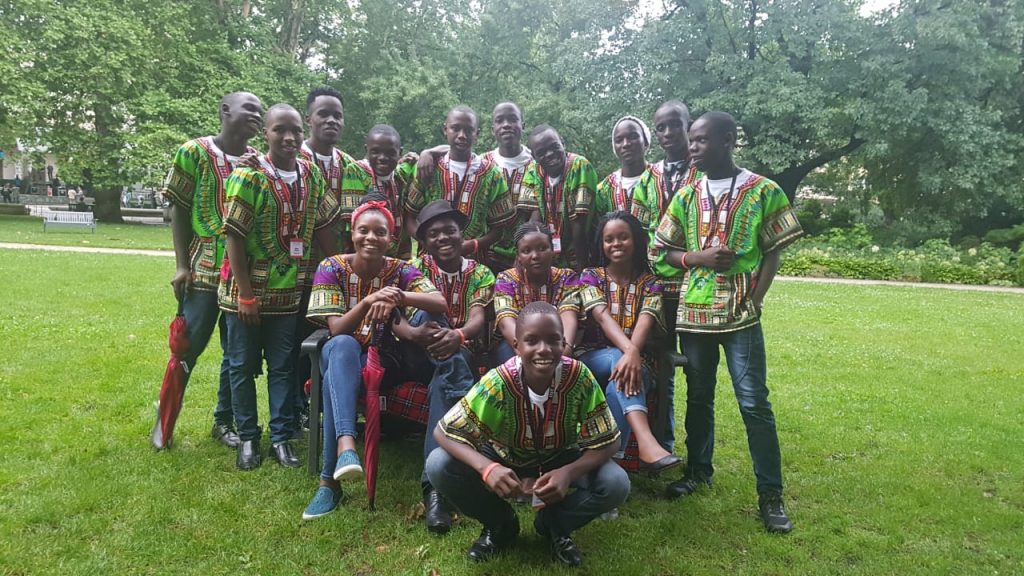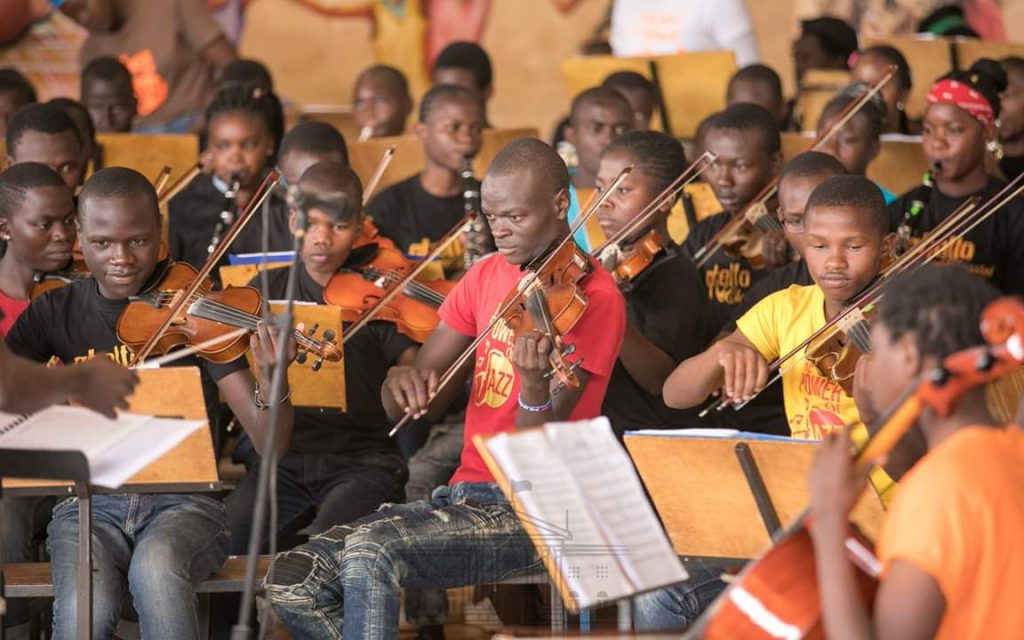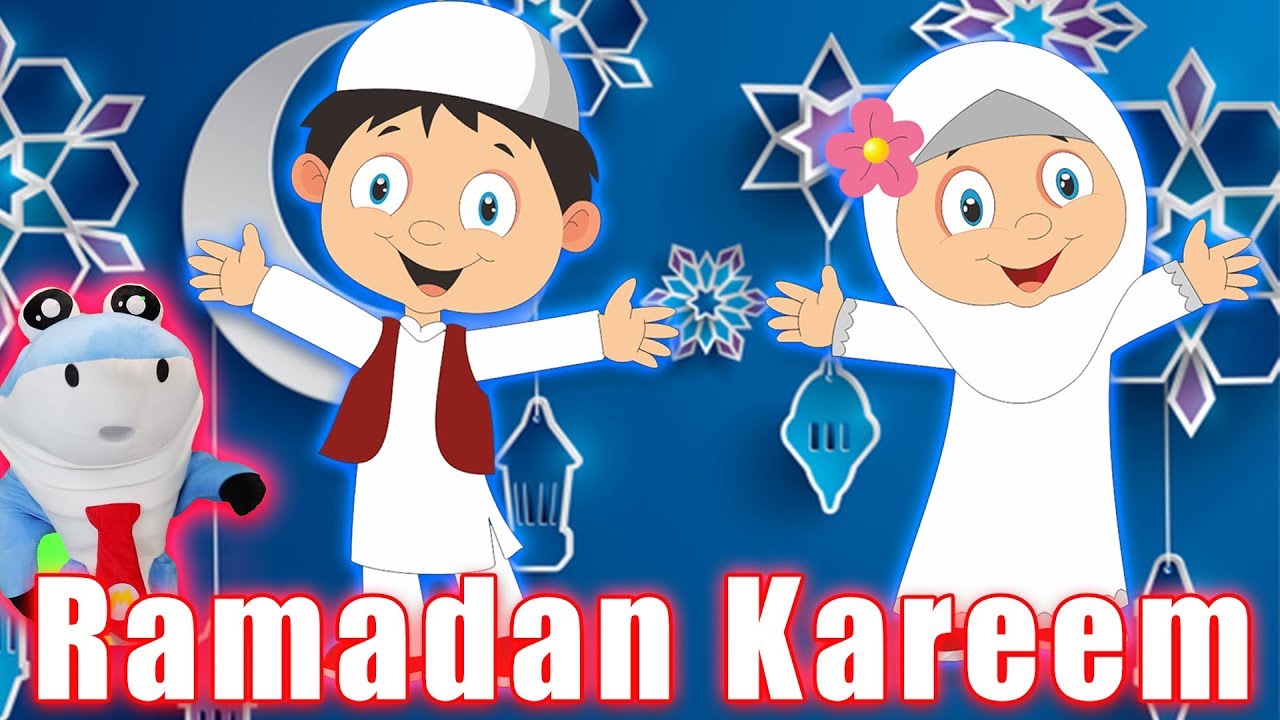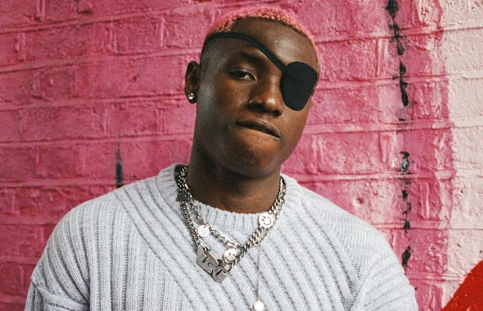 KB: How do you select who gets to join the mentorship programme? Is there an audition process? For Ghetto classics, with the community centres it's totally walk-in so anybody who wants to come and sticks around is welcome. There are just rules you have to follow - no drugs, you have to be regular and so on. With the National Youth Orchestra similar to the Safaricom Youth Orchestra there is an audition process on who can join.KB: It must be quite expensive to run this programme. How do you sustain yourselves? Do you have a patreon of sorts?We rely on sponsors and partners. Safaricom is one of our key sponsors and partners and has been extremely supportive. A lot of the musicians who have come in to visit us through the Safaricom Jazz festival have been very good friends. Salut Salon is one of those groups. They had a concert and with the money they raised they bought 50 violins which they then sent to us. They continue to give Skype lessons to my kids till today during this pandemic. They have also sent us money to buy food. In that sense they are a very good partner. There are many others as well, Jef Nev who has been doing a series of concerts online during this pandemic to raise money for us as well. A rotary club in Germany too. In Kenya, cash wise not so much but in other ways I have great Kenyan partners in individuals who donate instruments which their children gave up. In my phone book, I have people who will always help me out of a situation. So in terms of instruments, most of our instruments are donated. And for that I am truly grateful for my friends. The biggest issues have been solved from friendships.KB: You've run this wholesome foundation for a decade now. What valuable life lessons have you learnt in these 10 years?Like I've said earlier, the friendships. When I was starting the foundation I didn't have an idea what I was doing, I just knew the feeling and urge and drive to do it. I just knew it had to be done. If I had stopped being present, everything would have come crashing down. But today, what I am so proud of is the team that we have built. And a lot of the team comes from the project itself. So a lot of my staff (15 full time employees) are from Korogocho and they have come in through the project. The day to day is being run by the kids themselves and that I'm so happy and proud about. And I have learned to bring people in and invest in people and discuss the way forward in them. I am more confident now that if I wasn't present the projects would survive. There is enough buy in and structure from within that it will continue growing. And I have seen it more now during this pandemic with the urban farming project, feeding project. There is a team called 'Team Wazee' that has been going round helping the elderly. These are initiatives brought by the kids themselves and for that I'm very proud. They have understood that you give and serve your community.KB: Any mind blowing anecdote from Ghetto Classics you'd like to share?I have so many anecdotes but right now there is a young boy whose mother collects garbage from the dumpsites and he just started medical school. He is a great team leader in the orchestra. Last week, the kids had this challenge going on - who's always on time, who's always late and he was selected as the one who practices the most. He has made us proud by working through these challenges. And like I mentioned previously, on friendships, one of them has committed to paying his fees until he graduates from medical school. He's a great musician who was part of the Safaricom Youth Orchestra.KB: In what ways would you say music has impacted you and the children?For me, it is as I had indicated earlier. For the children, we have quite a lot of street kids who come into the projects and one of these kids came in and he couldn't look you in the eye and his shoulders were hunched and now he's laughing and helping to carry musical stands. And that is what I feel it gives these kids. We don't solve all the problems, we don't make everything OK physically but we give them the strength from within and we give them a reason to keep going and give them a new family and I feel that is always what I want to keep doing. To create this space and all you have there is an instrument and another musician and you feel you can go back to face whatever is waiting for you outside the gate.
KB: How do you select who gets to join the mentorship programme? Is there an audition process? For Ghetto classics, with the community centres it's totally walk-in so anybody who wants to come and sticks around is welcome. There are just rules you have to follow - no drugs, you have to be regular and so on. With the National Youth Orchestra similar to the Safaricom Youth Orchestra there is an audition process on who can join.KB: It must be quite expensive to run this programme. How do you sustain yourselves? Do you have a patreon of sorts?We rely on sponsors and partners. Safaricom is one of our key sponsors and partners and has been extremely supportive. A lot of the musicians who have come in to visit us through the Safaricom Jazz festival have been very good friends. Salut Salon is one of those groups. They had a concert and with the money they raised they bought 50 violins which they then sent to us. They continue to give Skype lessons to my kids till today during this pandemic. They have also sent us money to buy food. In that sense they are a very good partner. There are many others as well, Jef Nev who has been doing a series of concerts online during this pandemic to raise money for us as well. A rotary club in Germany too. In Kenya, cash wise not so much but in other ways I have great Kenyan partners in individuals who donate instruments which their children gave up. In my phone book, I have people who will always help me out of a situation. So in terms of instruments, most of our instruments are donated. And for that I am truly grateful for my friends. The biggest issues have been solved from friendships.KB: You've run this wholesome foundation for a decade now. What valuable life lessons have you learnt in these 10 years?Like I've said earlier, the friendships. When I was starting the foundation I didn't have an idea what I was doing, I just knew the feeling and urge and drive to do it. I just knew it had to be done. If I had stopped being present, everything would have come crashing down. But today, what I am so proud of is the team that we have built. And a lot of the team comes from the project itself. So a lot of my staff (15 full time employees) are from Korogocho and they have come in through the project. The day to day is being run by the kids themselves and that I'm so happy and proud about. And I have learned to bring people in and invest in people and discuss the way forward in them. I am more confident now that if I wasn't present the projects would survive. There is enough buy in and structure from within that it will continue growing. And I have seen it more now during this pandemic with the urban farming project, feeding project. There is a team called 'Team Wazee' that has been going round helping the elderly. These are initiatives brought by the kids themselves and for that I'm very proud. They have understood that you give and serve your community.KB: Any mind blowing anecdote from Ghetto Classics you'd like to share?I have so many anecdotes but right now there is a young boy whose mother collects garbage from the dumpsites and he just started medical school. He is a great team leader in the orchestra. Last week, the kids had this challenge going on - who's always on time, who's always late and he was selected as the one who practices the most. He has made us proud by working through these challenges. And like I mentioned previously, on friendships, one of them has committed to paying his fees until he graduates from medical school. He's a great musician who was part of the Safaricom Youth Orchestra.KB: In what ways would you say music has impacted you and the children?For me, it is as I had indicated earlier. For the children, we have quite a lot of street kids who come into the projects and one of these kids came in and he couldn't look you in the eye and his shoulders were hunched and now he's laughing and helping to carry musical stands. And that is what I feel it gives these kids. We don't solve all the problems, we don't make everything OK physically but we give them the strength from within and we give them a reason to keep going and give them a new family and I feel that is always what I want to keep doing. To create this space and all you have there is an instrument and another musician and you feel you can go back to face whatever is waiting for you outside the gate. KB: What's in the pipeline for T.A.M.F, Ghetto Classics and Safaricom Youth Orchestra? At the moment, we are seeking to ensure they are all self-sustaining and like I said earlier as a result of the pandemic, the team has been excellent and the students asking to come back to offer services, training, support has been very helpful. That for me is the future. Like I mentioned, the SYO term resumes in 2 weeks and for Ghetto Classics, we have hourly sessions for up to 8 students per hour. *Images: Elizabeth Njoroge
KB: What's in the pipeline for T.A.M.F, Ghetto Classics and Safaricom Youth Orchestra? At the moment, we are seeking to ensure they are all self-sustaining and like I said earlier as a result of the pandemic, the team has been excellent and the students asking to come back to offer services, training, support has been very helpful. That for me is the future. Like I mentioned, the SYO term resumes in 2 weeks and for Ghetto Classics, we have hourly sessions for up to 8 students per hour. *Images: Elizabeth Njoroge 




